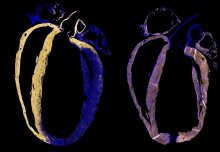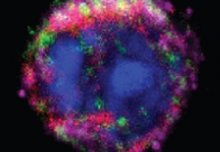

Eating for two
Nutrition and pregnancy: scientists challenge 'eat for two' myth
A new study suggests that women may not need to 'eat for two' during pregnancy because the body could adapt to absorb more energy from food.



Nutrition and pregnancy: scientists challenge 'eat for two' myth
A new study suggests that women may not need to 'eat for two' during pregnancy because the body could adapt to absorb more energy from food.


Imperial animal facility welcomes visit by school group
Last week a group of pupils from Westminster Academy took a tour of an Imperial animal facility.


Promising results in mice raise hope of treatment for spinal cord injury
A group of drugs being trialled for cancer could also hold promise as a treatment for spinal cord injury, a study in mice suggests.
 1
1


Scientists identify stem cell injection that could mend broken hearts
Researchers have identified stem cells that help repair the damage caused by a heart attack when injected in mice.


Video
Inside Imperial's animal research facilities
Imperial College London has published a short film taking viewers inside its animal research facilities.


Scientists discover protein that boosts immunity to viruses and cancer
The study discussed in this news story was retracted by the journal Science on 15 December 2016, following an investigation.
 8
8


Heart attack drug research awarded 2.7m pound funding
Imperial College London has been awarded a £2.7 million grant to develop drugs that lessen the damage caused by a heart attack.


Prototype 'nanoneedles' generate new blood vessels in mice
Scientists have developed tiny nanoneedles that have successfully prompted parts of the body to generate new blood vessels, in a trial in mice.


Imperial releases first animal research report at special public event
Around 200 people stepped into a replica animal house at a unique event held to launch Imperial's first annual report on animal research.
 1
1


Madagascan frogs at risk from killer fungus
A deadly fungus that has ravaged frog populations across the globe has been detected in Madagascar, prompting fears for hundreds of native species.